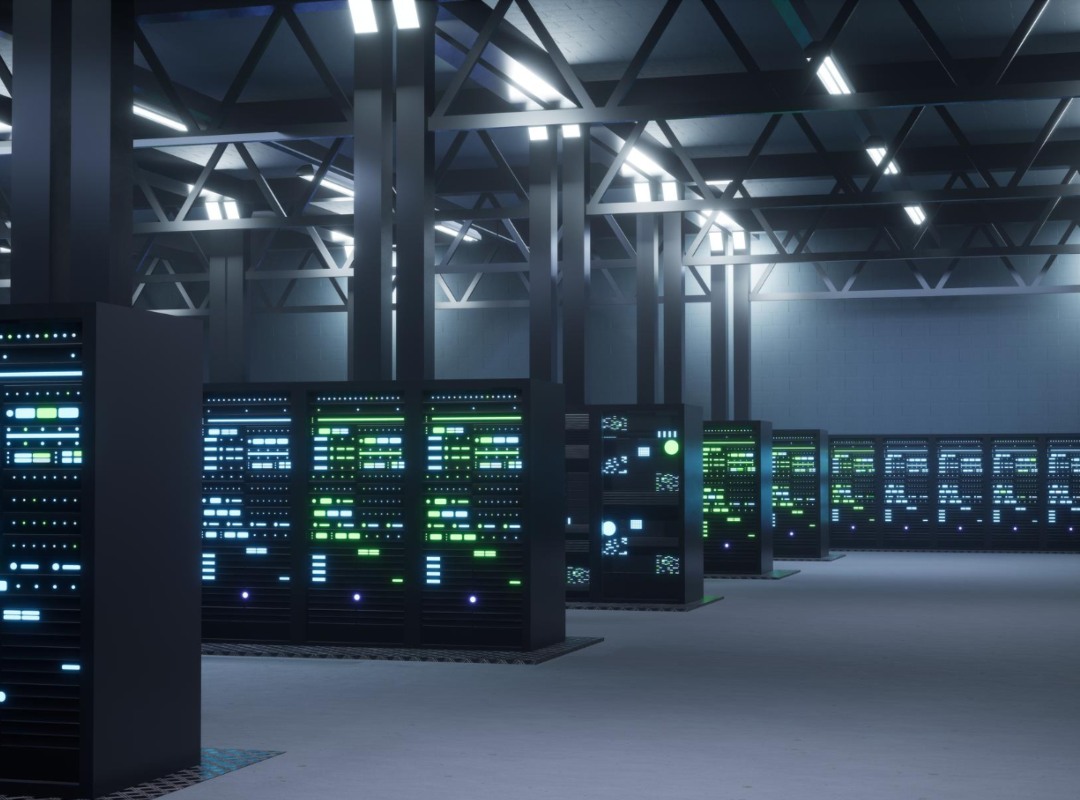As the demand for artificial intelligence (AI) and data-intensive technologies grows, so does the energy consumption of data centers. These facilities, which power everything from cloud computing to AI algorithms, are notorious for their massive carbon footprints. However, a groundbreaking solution is emerging: hydrogen-powered data centers. By leveraging hydrogen as a clean energy source, the tech industry is taking a significant step toward sustainability while meeting the ever-growing energy needs of AI and other advanced technologies.
The Energy Challenge of Data Centers
Data centers are the backbone of the digital economy, but they consume vast amounts of electricity. According to the International Energy Agency (IEA), data centers account for about 1% of global electricity demand, a figure that is expected to rise as AI and machine learning applications become more prevalent. Traditional data centers rely heavily on fossil fuels, contributing to greenhouse gas emissions and exacerbating climate change.
The rise of AI has only intensified this issue. Training large AI models, such as OpenAI’s GPT or Google’s Gemini, requires immense computational power. For instance, training a single AI model can emit as much carbon as five cars over their lifetimes. This has led to growing concerns about the environmental impact of AI and the need for more sustainable solutions.
Hydrogen as a Clean Energy Solution
Hydrogen, particularly green hydrogen produced using renewable energy, offers a promising alternative to fossil fuels. When used in fuel cells, hydrogen generates electricity with only water and heat as byproducts, making it a zero-emission energy source. This makes hydrogen an ideal candidate for powering energy-intensive facilities like data centers.
Several companies and researchers are already exploring the potential of hydrogen-powered data centers. For example, Microsoft has been experimenting with hydrogen fuel cells to provide backup power for its data centers. In 2020, the company successfully tested a 250 kW hydrogen fuel cell system, demonstrating that hydrogen could reliably support data center operations.
Benefits of Hydrogen-Powered Data Centers
1. Sustainability: Hydrogen-powered data centers can significantly reduce carbon emissions, especially if the hydrogen is produced using renewable energy sources like wind or solar power. This aligns with global efforts to combat climate change and achieve net-zero emissions.
2. Energy Efficiency: Hydrogen fuel cells are highly efficient, converting chemical energy directly into electricity with minimal waste. This efficiency can help data centers optimize their energy use and reduce operational costs.
3. Scalability: Hydrogen can be produced in large quantities and stored for long periods, making it a scalable solution for data centers that require consistent and reliable power.
4. Resilience: Hydrogen fuel cells can provide backup power during grid outages, ensuring uninterrupted operations for critical data center functions.
Challenges and the Path Forward
Despite its potential, the adoption of hydrogen-powered data centers faces several challenges. The production of green hydrogen is currently expensive and energy-intensive, requiring significant investment in renewable energy infrastructure. Additionally, the storage and transportation of hydrogen pose logistical challenges due to its low energy density and high flammability.
However, advancements in hydrogen production, storage, and fuel cell technology are rapidly addressing these issues. Governments and private companies are investing heavily in hydrogen infrastructure, driving down costs and improving efficiency. For instance, the European Union has launched the European Clean Hydrogen Alliance to accelerate the development of hydrogen technologies.
The Role of AI in Advancing Hydrogen Technology
Interestingly, AI itself can play a crucial role in advancing hydrogen technology. Machine learning algorithms can optimize hydrogen production processes, improve fuel cell efficiency, and enhance energy management in data centers. This creates a symbiotic relationship between AI and hydrogen, where each technology supports the other’s growth and sustainability.
Conclusion
Hydrogen-powered data centers represent a transformative shift in the tech industry’s approach to sustainability. By replacing fossil fuels with clean hydrogen, data centers can significantly reduce their environmental impact while meeting the growing energy demands of AI and other advanced technologies. While challenges remain, the rapid progress in hydrogen technology and the increasing commitment to renewable energy make this vision increasingly attainable.
As the world continues to embrace AI and digital transformation, hydrogen-powered data centers could become the cornerstone of a sustainable and resilient digital future.
References
1. Hydrogen Fuel News. “Hydrogen-Powered Data Centers: A Sustainable Solution for AI.” https://www.hydrogenfuelnews.com/hydrogen-powered-data-centers-ai/8569868/?no_cache=1
2. International Energy Agency (IEA). “Data Centres and Data Transmission Networks.”
3. Microsoft. “Hydrogen Fuel Cells: A New Way to Power Data Centers.”
4. European Commission. “European Clean Hydrogen Alliance.”




